Tax amendment could safeguard state’s small farms
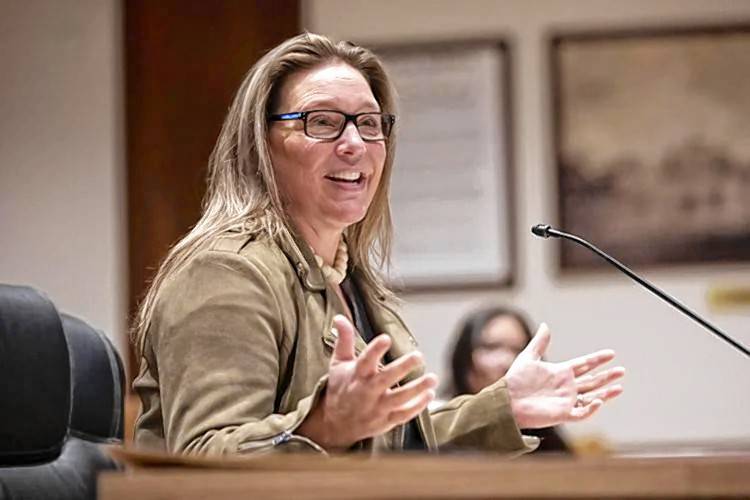
Rep. Natalie Blais of Deerfield speaks at a Revenue Committee hearing on Tuesday. STATE HOUSE NEWS SERVICE
|
Published: 03-26-2025 11:12 AM
Modified: 03-26-2025 3:41 PM |
BOSTON — A pair of western Massachusetts lawmakers made an urgent plea to their colleagues Tuesday to allow smaller farms to access property tax benefits currently available only to their larger peers.
The state constitution allows farmland to be taxed based on its value for agricultural or horticultural purposes, not for residential or commercial use, effectively providing lower rates to eligible farmers. But the provision is limited only to areas of 5 acres or more, a threshold that forces many farmers to “pay much higher commercial rates” for their land, Sen. Jo Comerford said.
As a result, Comerford told the Legislature’s Revenue Committee, that state constitutional measure now has “the opposite effect” of its intent to protect farmland and is instead “contributing to farmland loss.”
“Urban farmers can’t find parcels of land larger than 5 acres. New farmers can’t afford to purchase a large farm parcel. Even long-standing farms like Barstow’s Longview Farm in Hadley are impeded,” Comerford said.
The Northampton Democrat visited with the family that operates Barstow’s over the weekend, and said they told her that they pay more in taxes for 2 acres that do not qualify for the property tax provision than they do on hundreds of other eligible acres combined.
Comerford and other lawmakers filed a proposed constitutional amendment (H 71 / S 11) that would eliminate the 5-acre requirement and allow any farmland to be taxed based on its agricultural or horticultural value, as long as it has been devoted to those uses for at least two years.
The Revenue Committee gave a favorable report to a similar measure two years ago, but top Democrats opted against putting the measure to a vote during the joint House-Senate known as a Constitutional Convention.
For the amendment to take effect, the measure would need to be approved at a Constitutional Convention in two consecutive legislative sessions, then ratified by a majority of voters.
Article continues after...
Yesterday's Most Read Articles
“I do not take amending the Constitution of Massachusetts lightly,” said Rep. Natalie Blais, who filed the House version. “I would not have proposed this piece of legislation with Rep. [Hannah] Kane and Senator Comerford if I did not believe it was necessary. And quite frankly, there’s never been a more important time for us to take this step, as our local food system is really in crisis.”
Blais, a Deerfield Democrat, cited statistics from the American Farmland Trust project that estimated nearly 15% of Massachusetts agricultural land will be converted to other uses by 2040 under the status quo — the third-highest percentage of any state.
High home and farmland prices, combined with climate change threats and the prospect of federal funding cuts, continue to inflict pressure on the state’s aging agricultural workforce, Blais said.
“If there was ever a time for Massachusetts to step up and say that we believe in our farmers, we believe in the local food system that we have fought to strengthen and build over the last decade or more, this is really the time to do it,” she said.
The proposal won the support of Mass. Food System Collaborative Policy Director Rebecca Miller, who told the committee access to the tax benefit is “a rural issue, a suburban issue and an urban issue.”
Miller was the only other person besides Comerford and Blais to testify at Tuesday’s hearing, which committee co-chairs pointed out was the first non-budgetary joint committee hearing of the 2025-2026 term that began Jan. 1.
The panel faces an April 30 deadline to report on proposed constitutional amendments.
Neither of the committee’s new chairs, Rep. Adrian Madaro of Boston and Sen. Jamie Eldridge of Marlborough, indicated Tuesday whether they would mirror their predecessors and support the farmland tax rate measure.
Both lawmakers are new atop the Revenue Committee. Madaro last term co-led the Mental Health, Substance Use and Recovery Committee, while Eldridge co-chaired the Judiciary Committee.
Their panel could be pushed to make difficult decisions this term if federal spending cuts materialize and reshape the state budget.
“I think the work of all committees is going to be increasingly more challenging given what is going on in Washington, D.C.,” Madaro replied when asked if he expects the Revenue Committee to consider any tax code changes to make up for decreased federal funding. “So I look forward to working with Senator Eldridge and committee members to thoroughly review each and every proposal before us, and I know many of our fellow chairs are feeling the same way.”
Eldridge added, “The financial picture is still uncertain — will there be serious Medicaid cuts? Will there be other cuts to, say, the Department of Education? I think it’s still uncertain how that will impact the budget and therefore the work of the Revenue Committee.”






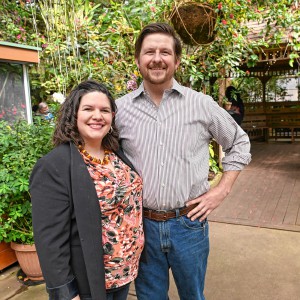 Hopeful buyers emerge for Magic Wings butterfly conservatory in South Deerfield
Hopeful buyers emerge for Magic Wings butterfly conservatory in South Deerfield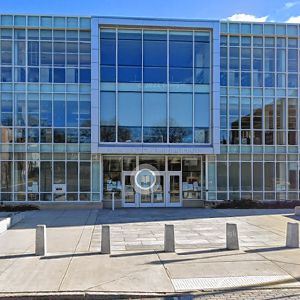 Area briefs: Mount Holyoke’s Trailblazers of Color conference; Holyoke Library to host annual mini golf and games; Westfield State launches paramedic program
Area briefs: Mount Holyoke’s Trailblazers of Color conference; Holyoke Library to host annual mini golf and games; Westfield State launches paramedic program 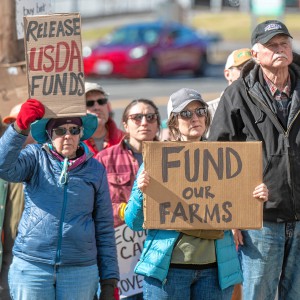 Putting themselves on the line: Activists say nonviolent protests focus attention, inspire others, drive change
Putting themselves on the line: Activists say nonviolent protests focus attention, inspire others, drive change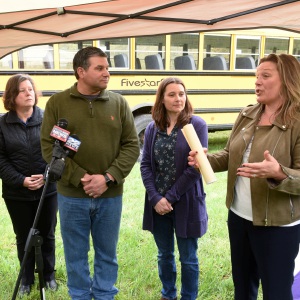 Legislation inspired by a Leverett family allows school bus monitoring systems
Legislation inspired by a Leverett family allows school bus monitoring systems
